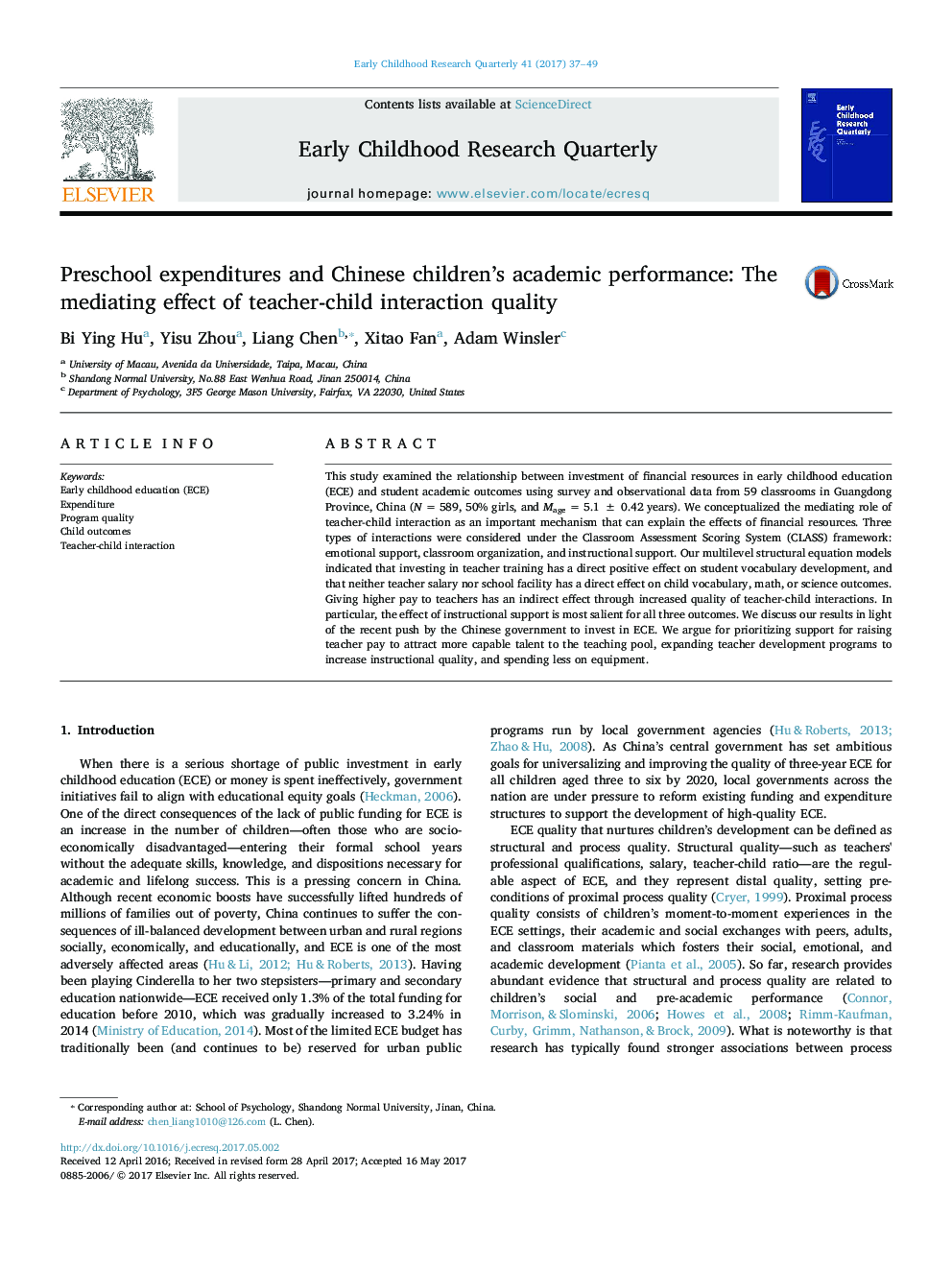| Article ID | Journal | Published Year | Pages | File Type |
|---|---|---|---|---|
| 4938209 | Early Childhood Research Quarterly | 2017 | 13 Pages |
Abstract
This study examined the relationship between investment of financial resources in early childhood education (ECE) and student academic outcomes using survey and observational data from 59 classrooms in Guangdong Province, China (N = 589, 50% girls, and Mage = 5.1 ± 0.42 years). We conceptualized the mediating role of teacher-child interaction as an important mechanism that can explain the effects of financial resources. Three types of interactions were considered under the Classroom Assessment Scoring System (CLASS) framework: emotional support, classroom organization, and instructional support. Our multilevel structural equation models indicated that investing in teacher training has a direct positive effect on student vocabulary development, and that neither teacher salary nor school facility has a direct effect on child vocabulary, math, or science outcomes. Giving higher pay to teachers has an indirect effect through increased quality of teacher-child interactions. In particular, the effect of instructional support is most salient for all three outcomes. We discuss our results in light of the recent push by the Chinese government to invest in ECE. We argue for prioritizing support for raising teacher pay to attract more capable talent to the teaching pool, expanding teacher development programs to increase instructional quality, and spending less on equipment.
Related Topics
Social Sciences and Humanities
Psychology
Applied Psychology
Authors
Bi Ying Hu, Yisu Zhou, Liang Chen, Xitao Fan, Adam Winsler,
